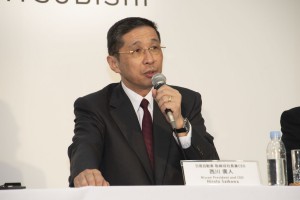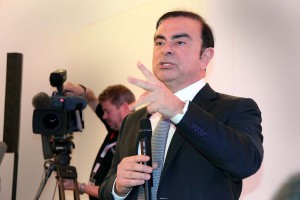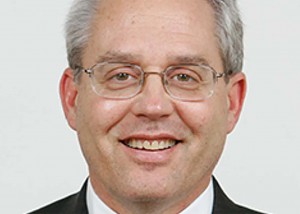Less than a month after being released on bail, former Nissan Chairman Carlos Ghosn found himself in a police van being hauled back to the Tokyo Detention Center Thursday morning after being arrested for the fourth time.
Authorities said the move came in the wake of new allegations of financial corruption stemming from Ghosn’s years as the top executive at Japan’s second-largest automaker, the 65-year-old now accused of not only hiding millions of dollars in pay but diverting company funds. However, the latest move by prosecutors has renewed concerns that Ghosn is actually being used as a pawn in a political game for control in the Euro-Asian Renault-Nissan-Mitsubishi Alliance.
“My arrest this morning is outrageous and arbitrary,” Ghosn said in a statement issued after he was roused from his apartment in Tokyo. “It is part of another attempt by some individuals at Nissan to silence me by misleading the prosecutors. Why arrest me except to try to break me? I will not be broken. I am innocent of the groundless charges and accusations against me.”
The Brazilian-born executive was first arrested on Nov. 19, after flying into Tokyo for a series of meeting. He was initially accused of concealing millions of dollars in income, but prosecutors have periodically rolled out new allegations that helped them extend Ghosn’s initial incarceration and, now, bring him back into custody where he is expected to be returned to solitary confinement in a room not much bigger than the interior of a Nissan minivan.
(Carlos Ghosn released on bail after appeal. Click Here for the story.)
But the case has raised international, as well as internal, concerns about why Ghosn was prosecuted in the first place and, more broadly, about the fundamentals of the Japanese justice system. Authorities there claim a conviction rate of more than 90%, but observers have charged that extended detentions under harsh conditions contribute to a high rate of questionable confessions.
During his original stay in detention, Ghosn was subject to daily interrogations without a lawyer and aggressively encouraged to sign a confession in Japanese, a language he doesn’t speak.

Nissan CEO Hiroto Saikawa has led an aggressive charge to reshape the Renault-Nissan-Mitsubishi Alliance.
At a news conference shortly after Ghosn’s original arrest, Nissan CEO Hiroto Saikawa claimed the case was triggered by a whistleblower who raised concerns about financial misdeeds by the former CEO. An ongoing investigation has, according to the company, continued to reveal new issues of alleged corruption.
The newest charges center around $5 million in Nissan funds they claim were diverted to a company controlled by Ghosn.
“We now have a totally different case, and we are only doing what we think is right,” said Shin Kukimoto, deputy chief prosecutor at the Tokyo District Prosecutor’s Office, in a meeting with reporters on Thursday.
There is little doubt that Ghosn pushed the boundaries of what was ethically, and even legally permissible, according to a number of different sources TheDetroitBureau.com has spoken to. But one source with long ties to the executive and the company, said there is a major difference between what would be seen as a civil infraction and a criminal one.
“This is unprecedented in Japan,” the source said, noting that it is the norm, rather than the exception, for Japanese executives to have access to lavish perks and other benefits that are technically not permissible and which are routinely not reported as income.
(Click Here to see how “plot and treason” brought Ghosn down, jailed exec says.)
He likened the case to the legendary scene in the movie “Casablanca,” where the local police official decides to shut down the hidden casino at Rick’s Café and announces he is “shocked” to find gambling underway. A moment later, an employee hands him his winnings for the night.
“Millions of dollars cannot be dispersed by two people,” he added, referencing both Ghosn and former Nissan executive Greg Kelly, who was also arrested last November.
Like numerous other current and former employees and other sources told TheDetroitBureau.com, it is widely believed that CEO Saikawa and senior board officials had varying levels of knowledge about Ghosn’s financial moves.
“The question is when that shoe will drop,” said one source.
Details could emerge when Ghosn is brought to trial, something that could happen this year, though, with the addition of new charges could push into 2020, according to news reports from Japan. There are many who question whether prosecutors actually want a trial if it could reveal Ghosn’s alleged infractions were known and accepted at senior levels within Nissan.
Instead, the executive could be facing more pressure to come up with some sort of face-saving plea that would allow authorities to claim he served time and was held accountable but then let the executive leave Japan, never to return.
(Ghosn’s new attorney blasts Nissan, Japanese prosecutors. Click Here for more.)
But Ghosn’s latest comments are in line with a man those who know him describe as “tough” and “unbreakable.” Few would be surprised if he presses forward towards trial, even if taking a plea deal would provide him a quick way out.


